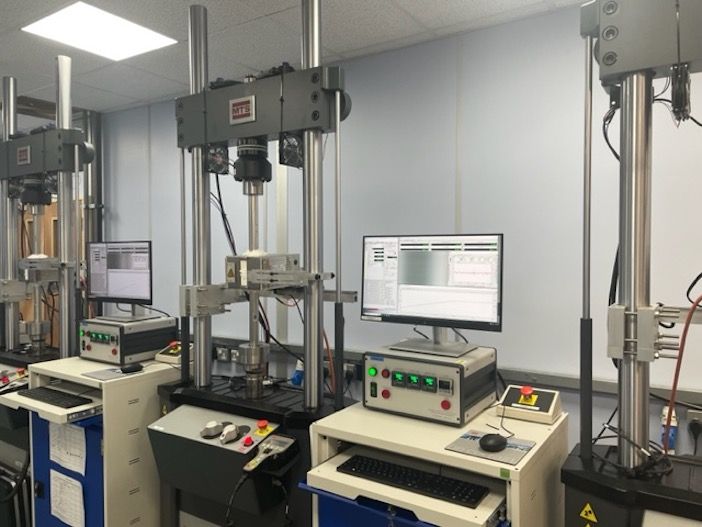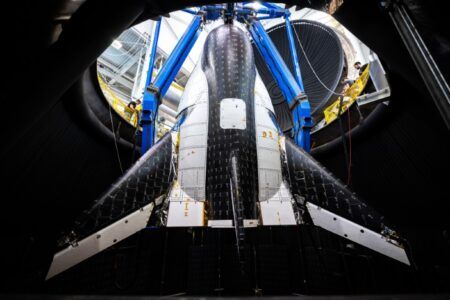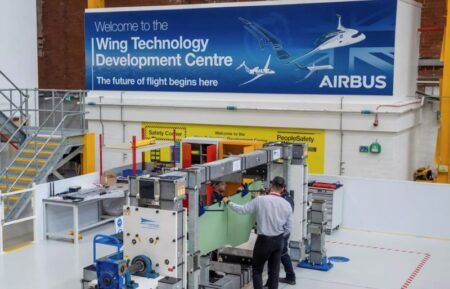Element has invested £2.2 million to increase its strain-controlled fatigue testing capacity at its Lancaster, UK, laboratory in support of ever-growing demand within the aerospace sector.
Strain-controlled fatigue is a method used to assess the performance of materials under a range of different conditions. Lancaster’s new fatigue frames, supplied by MTS Systems, allow Element’s engineers and technicians to test the strain extent of materials at hot and cold temperatures.
The Lancaster laboratory has bought 12 frames to give European aerospace manufacturers greater and quicker access to materials testing services.
The frames can also be used to perform complex crack propagation, high cycle fatigue, and low cycle fatigue testing, providing customers with the full breadth of strain-controlled fatigue tests.
Element also plans to expand its laboratories in Toulouse, France and Pilsen, Czech Republic over the next 12 months, to provide what it says will be the largest global capacity to perform this type of testing for the aerospace industry.
Matt Hopkinson, executive vice president of Europe, the Middle East and Africa at Element said, “We are really pleased to be able to further support our customers in Europe in improving and developing the latest in strain-controlled fatigue testing in aerospace.
“As aircraft manufacturing moves into an upturn over the next few years, we are pleased to provide high-quality, advanced testing to OEMs across the sector. Element will continue to develop capacity and invest in expanding technologies and capabilities to support the industry’s progression.”
Element Lancaster provides fatigue and fracture mechanics testing, including strain and load-controlled fatigue, crack propagation, and fracture toughness testing. Other capabilities include CMC fatigue and creep testing, and digital image correlation.





